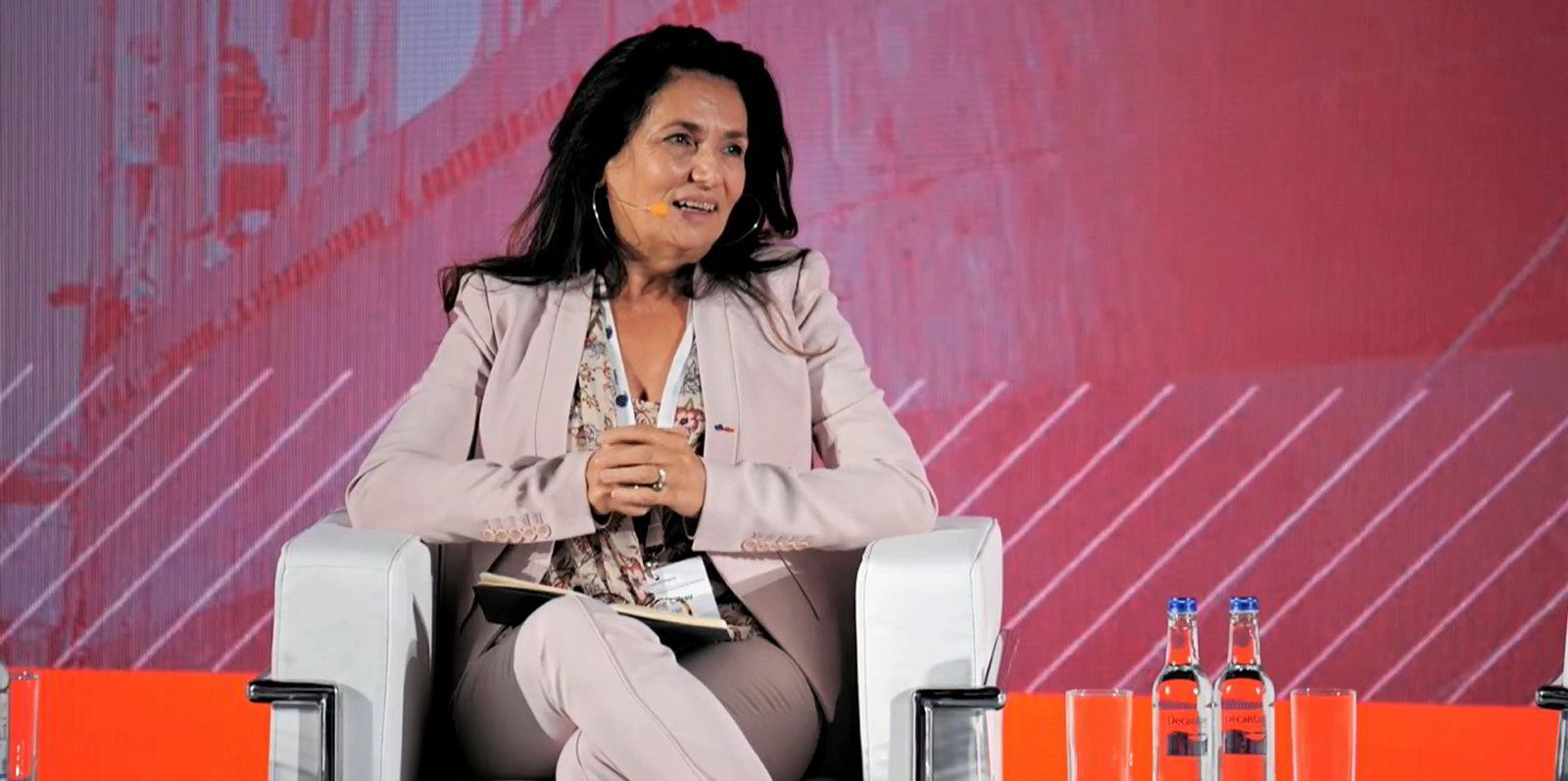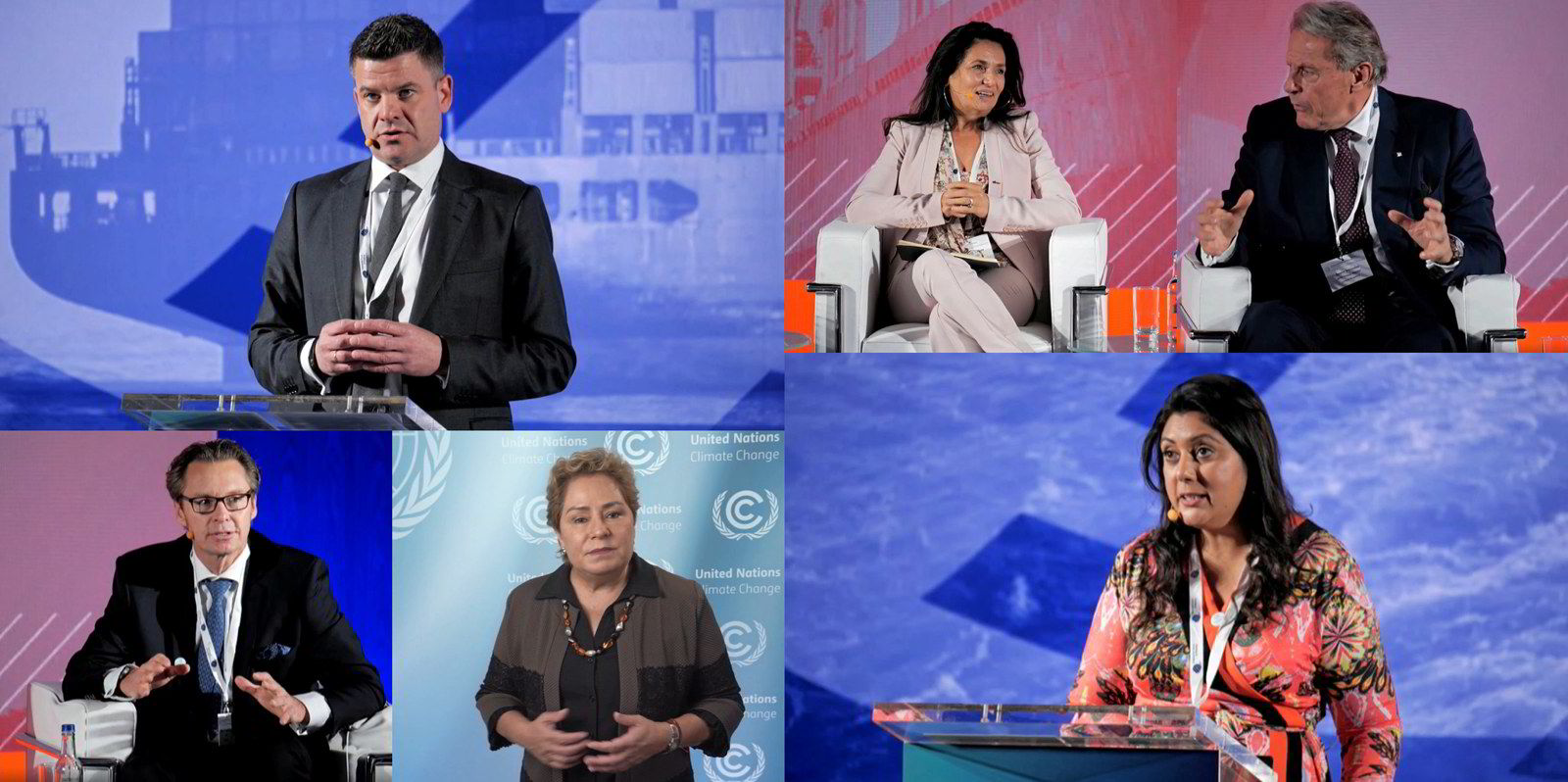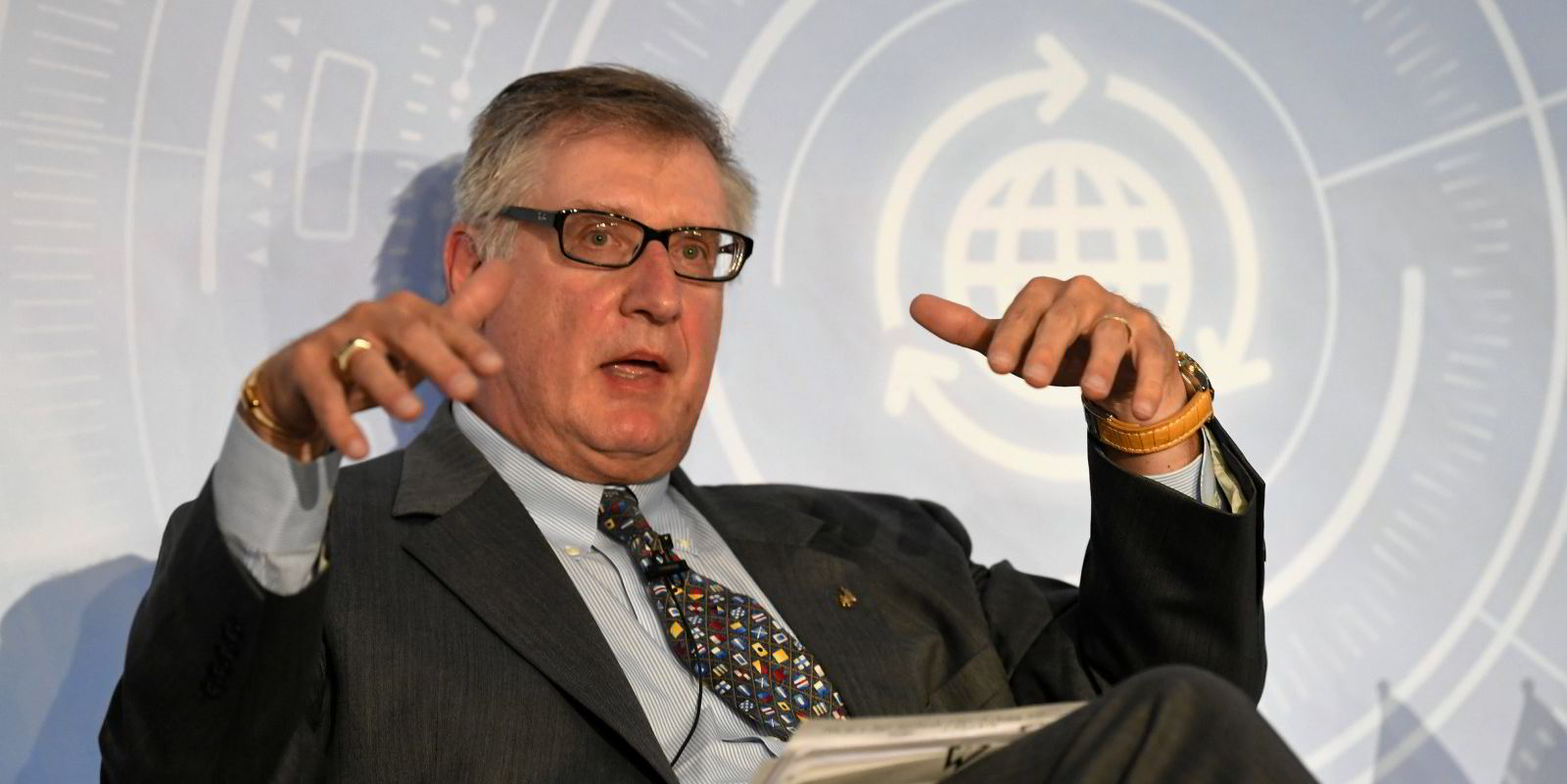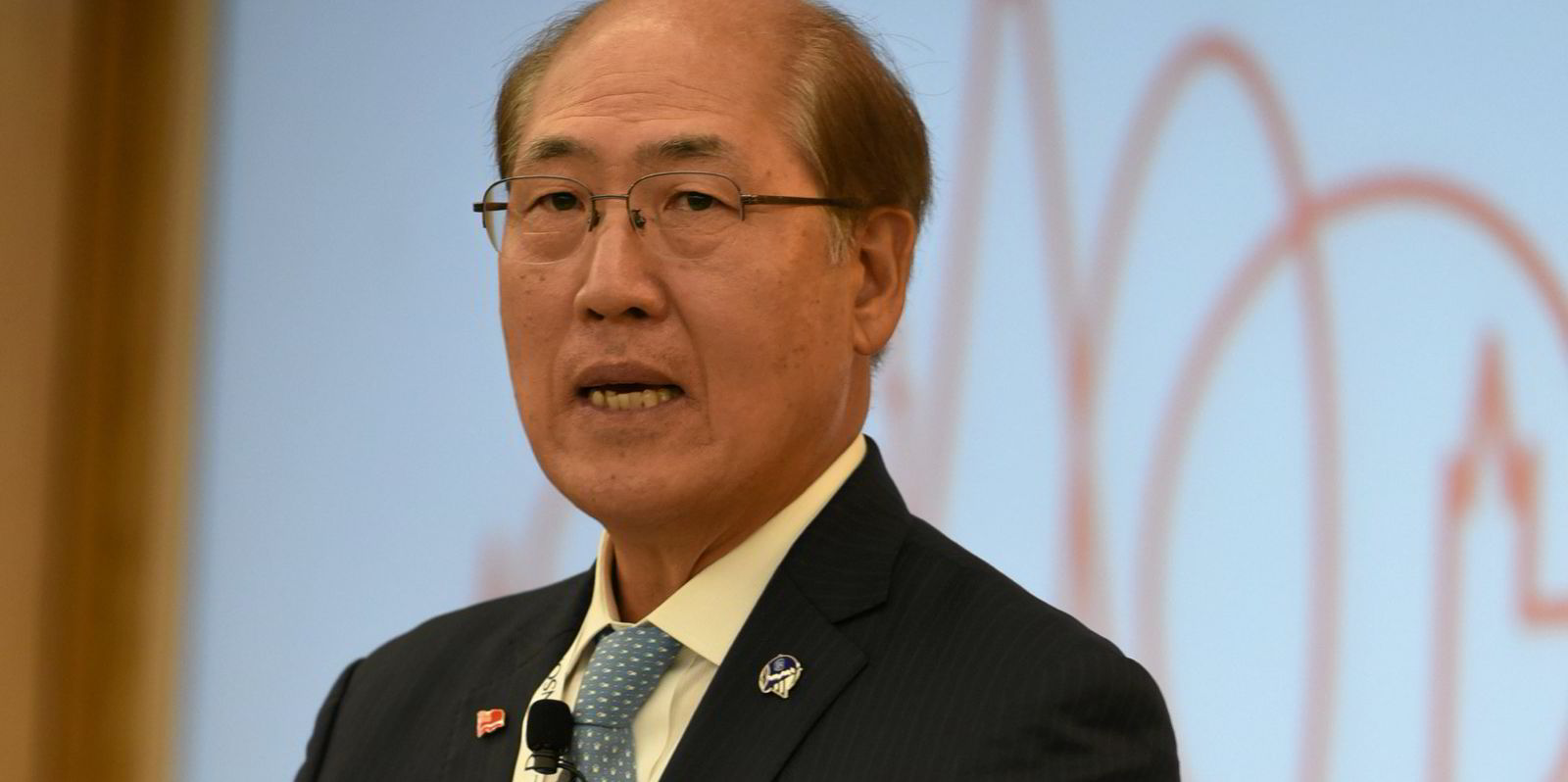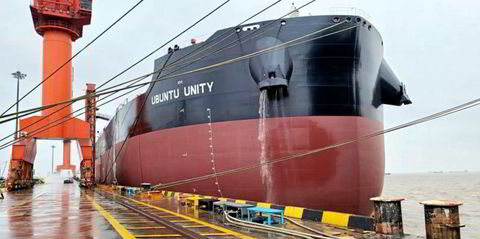Shipping figures debated LNG's role as a shipping fuel as methane came under increasing fire during the COP26 climate conference.
At an International Chamber of Shipping (ICS)-organised event in Glasgow, major vessel operators defended LNG fuelling as a way to take action now to reduce greenhouse gas emissions before lower-carbon and zero-carbon fuels become more widely available.
They also highlighted the ability to use biomethane or e-methane in the vessels.
But even as they came to LNG's defence at the Shaping the Future of Shipping conference, an executive for Japan's NYK Line said the giant shipowner had paused new orders of vessels using the fuel until at least 2028.
Svein Steimler, chief executive of subsidiary NYK Group Europe, said LNG's advantage is that it is available today.
"It's a bridge into something new," he said.
He noted that the company is working on ammonia and methanol fuel during its LNG order hiatus but urged regulators to come up with rules for shipping to follow.
The focus on the fuel came as COP26 is scheduled to turn its focus to transportation on Wednesday as a growing chorus of voices is urging the International Maritime Organization to shift its ambition to zero-carbon emissions in 2050, rather than its current goals for a 50% cut at the middle of the century.

In the build-up to COP26, methane emissions were highlighted as a potent greenhouse gas contributing to climate change.
Then, during the event, more than 100 countries joined the Global Methane Pledge led by the US and European Union. The pledge calls for a 30% cut in methane emissions by 2030.
Small, short-term fix
Lasse Kristoffersen, vice chairman of the International Chamber of Shipping and chief executive of Torvald Klaveness, expressed doubts about investing in infrastructure for LNG fuelling, saying it could not get the industry to a zero-carbon goal.
"Yes, it is a small fix in the short term, but we cannot as a society over the next decade or two invest in an infrastructure for LNG," he said. "It will not take us there.
"If you order an LNG vessel today, it is delivered in 2025 and will be living up to 2050 and then, we are supposed to be at zero."
At that stage, he said LNG's 20% cut in carbon emissions does not matter.
Christine Cabau Woehrel, head of fleets and assets at French liner giant CMA CGM and chief executive of its CMA Ships subsidiary, was among voices at the Shaping the Future of Shipping conference defending LNG fuel as a transition fuel, as TradeWinds reported on Saturday.
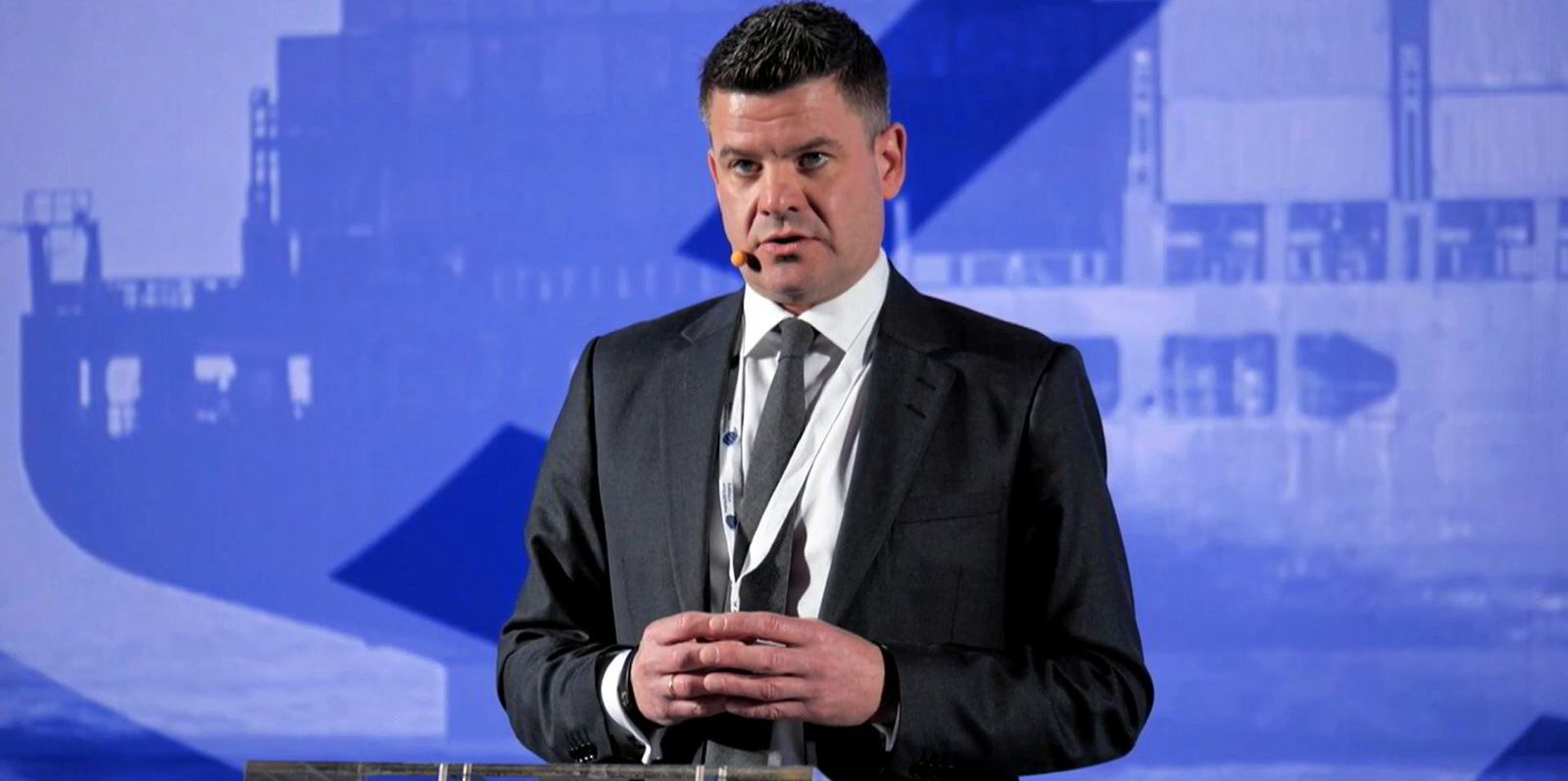
CMA CGM has placed a major bet on the fuel, which it has been using for three years, and Woehrel said the company's ships will be able to use biomethane or the synthetic fuel e-methane at a later stage.
"At CMA CGM, we strongly believe in synthetic fuels for the future," she said.
She pointed to the company's agreement with Engie aimed at accelerating e-methane production.
Synthetic methane's ingredients include captured carbon, so it factors into a net-zero equation for shipping but is not emission-free.
"Why on earth as a society in 2030 should we capture CO2, put it into a fuel and release it again?" Kristofferson said of the fuel. "Come on, we are going to remove CO2."
Vandita Pant, chief commercial officer of mining giant BHP, acknowledged that the fuel mix needs to change as her company works towards net-zero carbon emissions in its shipping operations.
She said that mix needs to involve "pragmatic, here-and-now" choices that acknowledge the energy transition.
That is why BHP was first among miners to adopt LNG fuelling by chartering five bulkers ordered by Eastern Pacific Shipping.
"We take that leadership very seriously," she said. "And we see that others have followed, which is fantastic because that accelerates the path."
Knut Orbeck-Nilssen, chief executive for maritime at classification society DNV, said the focus needs to be on what the industry needs to do now.
"LNG and LPG fuel is a really great step to take now," he said. "It gives you savings in the range of 15% to 25% on CO2 emissions.
"Now it might not be perfect, but I can assure you that if you were able to save 20% on your costs, you wouldn't dismiss it."
